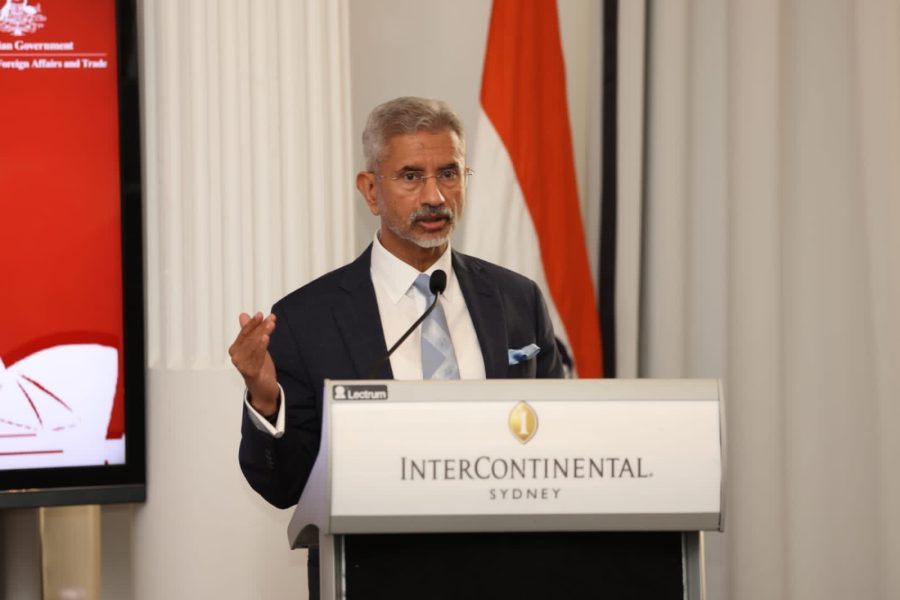
Ties with China 'abnormal' due to border violations: Jaishankar

India wants to ensure that its relations with all countries advance without seeking exclusivity, External Affairs Minister S Jaishankar said as he underlined that China falls into a somewhat different category because of the currently “abnormal” nature of ties which is an outcome of a violation of border management agreements by Beijing.
Jaishankar, who arrived in Santo Domingo on his first official visit to the Dominican Republic, said India has seen a dramatic expansion in connectivity, contacts, and cooperation across the region. Pakistan, however, remains an exception to this in view of cross-border terrorism, he said on Friday while addressing the diplomatic corps and young minds of the diplomatic school of the Dominican Republic.
Also read: India can’t engage with Pakistan due to cross-border terror: S Jaishankar
China, the exception
“Whether it is the US, Europe, Russia, or Japan, we are trying to ensure that all these ties advance without seeking exclusivity. China falls in a somewhat different category because of the boundary dispute and the currently abnormal nature of our ties. That is an outcome of a violation of agreements regarding border management by them,” Jaishankar said.
He said the rise of China and India in a parallel timeframe is also not without its competitive aspects.
India has been slamming China’s deployment of troops and its aggressive behaviour along the Line of Actual Control in eastern Ladakh in violation of pacts on border management.
Earlier this week, India firmly told China that its violation of the border pacts has “eroded” the entire basis of bilateral ties and that all issues relating to the frontier must be resolved in accordance with the existing agreements.
The eastern Ladakh border standoff erupted on May 5, 2020, following a violent clash in the Pangong Lake area. The ties between the two countries nosedived significantly following the fierce clash in the Galwan Valley in June 2020 that marked the most serious military conflict between the two sides in decades.
In his address, Jaishankar went on to explain how India approaches the world and engages Latin America and what should today’s India and tomorrow’s India mean.
India’s priorities
“India’s most pressing priorities are obviously in its neighbourhood. Given its size and economic strength, it is very much for the collective benefit that India takes a generous and non-reciprocal approach to cooperation with smaller neighbours. And that’s exactly what we have done in the last decade under Prime Minister Narendra Modi,” he said.
“For the first time in 2015, Prime Minister Modi articulated a comprehensive view that spanned the entirety of the Indian Ocean and its islands. This subsequently became the building block for the Indo-Pacific vision that emerged thereafter, he said.
“We are also practising the approach of engaging all major centres of power. Such multi-alignment reflects the reality of multipolarity. Obviously, each engagement has its own particular weight and focus,” he added.
Votary of multilateralism
The external affairs minister said India has always been a staunch votary of multilateralism. “We believe that this is fundamental to the maintenance of global order. Our contributions have been significant over the years, especially in peacekeeping. The challenge, however, is the resistance to reforming multilateralism, particularly the working of the United Nations and its bodies,” he said.
He said that more countries are going to find arrangements among themselves on pressing issues when they find that the United Nations cannot rise to a challenge.
“Overall, India is a nation that is deeply committed to promoting collective solutions for global good. Our presidency of the G-20 this year is devoted to focusing on the real challenges to global development and global growth,” he added.
Also read: EAM Jaishankar discusses Sudan situation with UN chief Guterres
On India’s engagement with Latin America, he said in the last decade, there had been a conscious deepening of this process. “Our trade with Latin America is today approaching a volume of USD 50 billion.”
Separately, addressing the India-Dominican Republic Business Event on Friday, Jaishankar said the trade turnover between India and the Dominican Republic has reached almost USD one billion.
(With Agency inputs)

